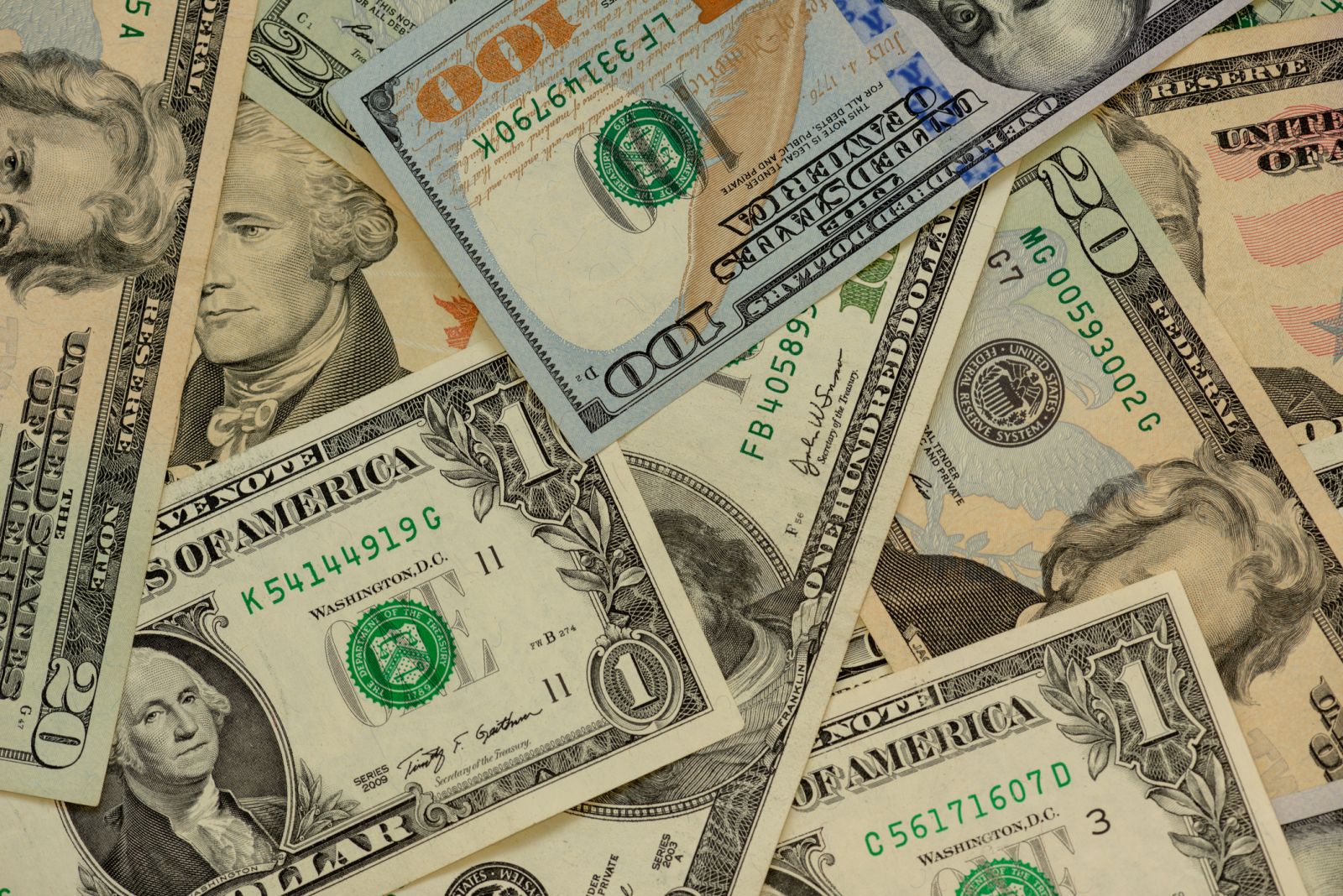Dollar Sinks and Gold Jumps on Rising US Trade Tensions

The dollar index (DXY00) today is down by -0.67% at a 1-1/4 month low. Escalation of US-China trade tensions has led to a selloff of the US dollar after China accused the US of violating their recent trade deal by unilaterally introducing new discriminatory restrictions. Also, dovish comments from Fed Governor Waller weighed on the dollar when he said he sees a path to Fed interest rate cuts later this year. Losses in the dollar accelerated after today's US economic news showed the May ISM manufacturing index and Apr construction spending unexpectedly declined.
Escalating trade tensions between the US and China have eroded confidence in the dollar. China's Ministry of Commerce today accused the US of unilaterally introducing new discriminatory restrictions, including new guidelines on AI chip export controls, curbs on chip design software sales to China, and the revocation of Chinese student visas, and vowed to take measures to defend its interests. The latest flare-up threatens to worsen trade relations even after President Trump expressed hope he will speak with Chinese President Xi Jinping this week to accelerate a trade truce.
The US May ISM manufacturing index unexpectedly fell -0.2 to 48.5, weaker than expectations of an increase to 49.5 and the steepest pace of expansion in 6 months.
US Apr construction spending unexpectedly fell -0.4% m/m, weaker than expectations of a +0.2% m/m increase.
Fed Governor Waller said, "Assuming that the effective tariff rate settles close to my lower tariff scenario, that underlying inflation continues to make progress to our 2% goal, and that the labor market remains solid, I would be supporting good news rate cuts later this year."
The markets are discounting the chances at 5% for a -25 bp rate cut after the June 17-18 FOMC meeting.
EUR/USD (^EURUSD) today is up by +0.86% at a 1-1/4 month high. The escalation of US-China trade tensions is pressuring the dollar to the benefit of the euro. Further upside in the euro may be limited after the German May S&P manufacturing PMI was revised downward. Also, expectations that the ECB will cut interest rates by -25 bp at Thursday's policy meeting are negative for the euro.
The German May S&P manufacturing PMI was revised downward by -0.5 to 48.3 from the previously reported 48.8.
Swaps are discounting the chances at 98% for a -25 bp rate cut by the ECB at Thursday's policy meeting.
USD/JPY (^USDJPY) today is down by -0.98%. The yen is climbing against the dollar today as the escalation of US-China trade tensions boosted safe-haven demand for the yen after China accused the US of violating their recent trade deal by unilaterally introducing new discriminatory restrictions. The yen also garnered support from today's Japanese economic news that showed the May Jibun Bank manufacturing PMI was revised upward, and Q1 capital spending ex-software rose more than expected.
The Japan May Jibun Bank manufacturing PMI was revised upward by +0.4 to 49.4 from the previously reported 49.0.
Japan's Q1 capital spending ex-software rose +6.9% y/y, stronger than expectations of +5.3% y/y.
August gold (GCQ25) today is up +87.10 (+2.63%), and July silver (SIN25) is up +1.481 (+4.48%). Precious metals today are sharply higher, with gold climbing to a 3-week high and silver posting a 2-month high. Today's fall in the dollar index to a 1-1/4 month low is bullish for metals. Also, the escalation of US-China trade tensions has boosted safe-haven demand for precious metals after China accused the US of unilaterally introducing new discriminatory trade restrictions. In addition, dovish comments from Fed Governor Waller are supporting demand for precious metals as a store of value when he said he sees a path for Fed rate cuts later this year. Finally, precious metals prices have continued safe-haven support from uncertainty about global trade relations and geopolitical tensions in Ukraine and the Middle East.
Higher global bond yields today are negative for precious metals. Also, silver prices are being pressured on concern that the escalation of US-China trade tensions will lead to diminished economic activity that curbs demand for industrial metals.
On the date of publication, Rich Asplund did not have (either directly or indirectly) positions in any of the securities mentioned in this article. All information and data in this article is solely for informational purposes. For more information please view the Barchart Disclosure Policy here.